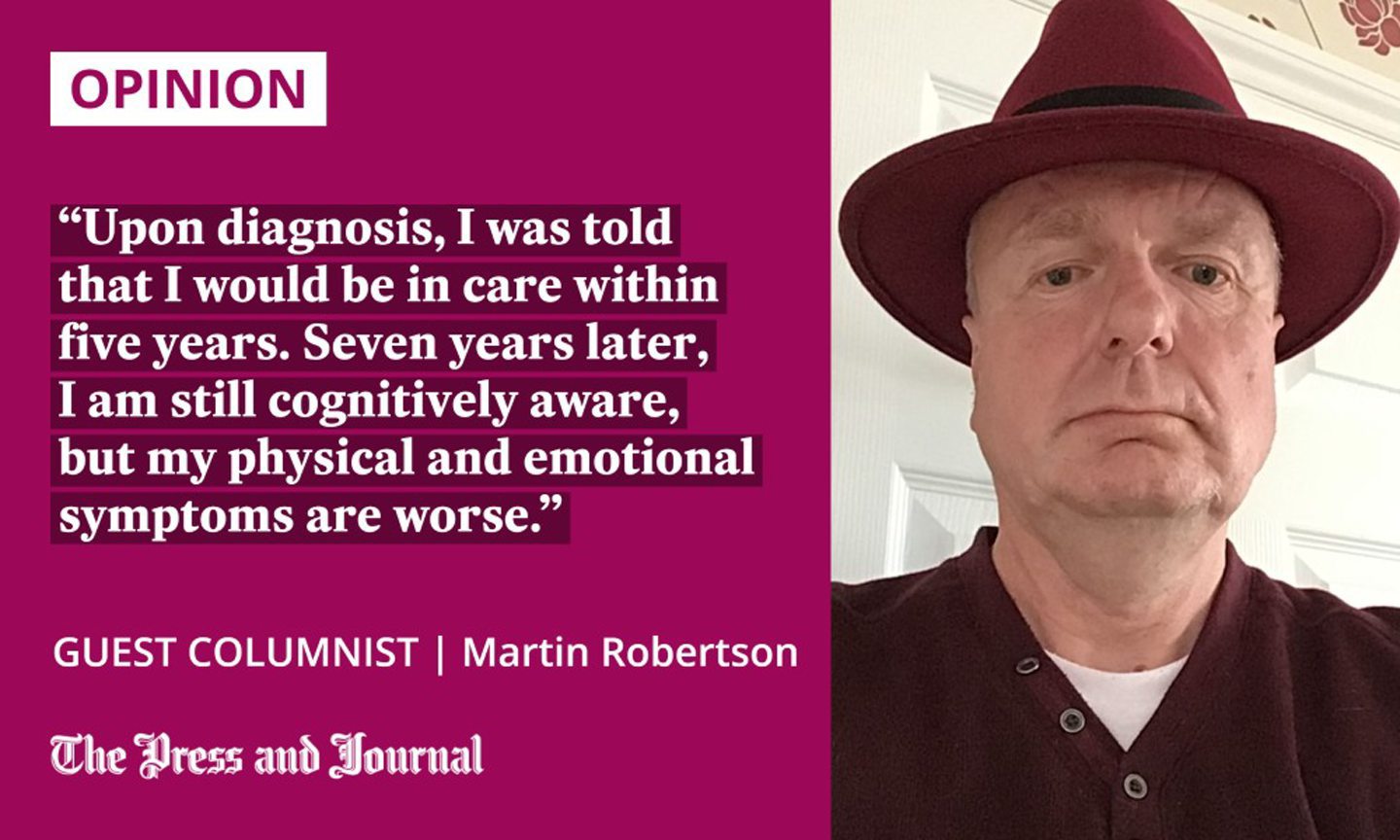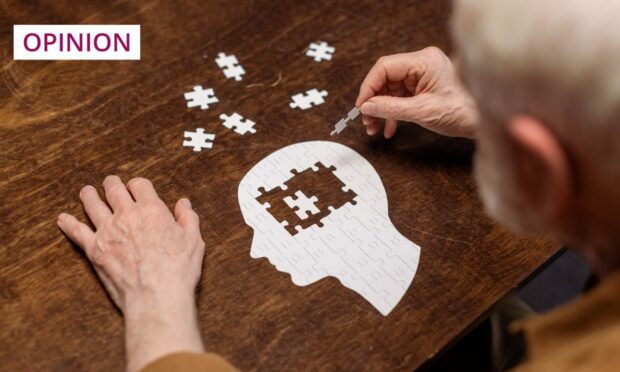It is never too early to be diagnosed with dementia.
By that I mean that if you have the symptoms of the illness, it is best to be diagnosed early, rather than later on. The diagnosis doesn’t change anything physically; your symptoms are still the same when you come out of the consultation as when you went in.
The recent news of Fiona Phillips having been diagnosed with Alzheimer’s disease at the age of 61 is an example of early-onset dementia. (Alzheimer’s is only one form of dementia, there are over 100.)
Fiona Phillips is on a drug trial: this is the major advantage of receiving an early diagnosis; all the drugs currently being tested are only for those with very early-onset dementia. I was diagnosed seven years ago, so am too late, but Phillips also has a build-up of amyloid beta which these new drugs aim to treat, whilst I have a build-up of tau, which is a different chemical.
She was diagnosed within a couple of years of showing symptoms. On average, it takes four years. It took three for me.
I knew something was wrong, as I had very bad perception, but I was initially being treated for one-sided headaches. I was very wary when driving.

One night, I went to the consultant for what I thought would be a normal visit, but he had one last idea; he gave me a paper test about memory, cognition and spatial awareness.
I scored 26 out of 30, which normally means mild cognitive impairment. However, one of the tests was to draw two infinity symbols looped together; mine were on opposite edges of the paper. He immediately told me I had dementia and should not drive.
At this point of diagnosis, most people find it hard to accept. But I felt liberated, as I did not have to drive anymore, even though that meant stopping paid work. I had been terrified of causing an accident.
I felt liberated because I could do what I wanted, if I wanted, when I wanted; no more clock-watching. I actually now don’t wear a watch at all: time has no real meaning, except when I have appointments, and I rely on my wife to ensure I attend them.
That is not to say I sit around doing nothing, feeling sorry for myself. Of course, with dementia there are what we call “foggy days”, when you are incapable of doing anything. However, whilst in the fog, you know that you will feel better another day.
I know that, at some point, I won’t come out of the fog, but I am doing my very best to push that day back.
Early diagnosis allows you to treasure time with loved ones
Upon diagnosis, I was told that I would be in care within five years. Seven years later, I am still cognitively aware, but my physical and emotional symptoms are worse. I was at the neurologist recently, and he said that this is down to the fact that I keep my brain stimulated.
I do this by participating in research in a meaningful way – I actually help to design studies and analyse the results, as well taking part. I am not on a par with the academics I work with as I can only manage two hours a day, but it certainly keeps my brain stimulated.
Set up power of attorney, so that when you can no longer make decisions, you have the peace of mind that someone who knows you can
Another advantage of an early diagnosis is that you know the worst. This extra time allows you to enjoy your life in your manner, making memories for your loved ones.
On a practical but very important note: it allows you to set up power of attorney, so that when you can no longer make decisions, you have the peace of mind that someone who knows you can.
Many people don’t arrange this and then find out too late that organisations such as the NHS gain total control over your life. One has to have the mental capacity to appoint one and, by the time you need one, it is too late.
I would obviously prefer not have dementia, but I would always choose to have it diagnosed early rather than left until it was obvious to all.
Martin Robertson lives in Cruden Bay and was diagnosed with posterior cortical atrophy at 58











